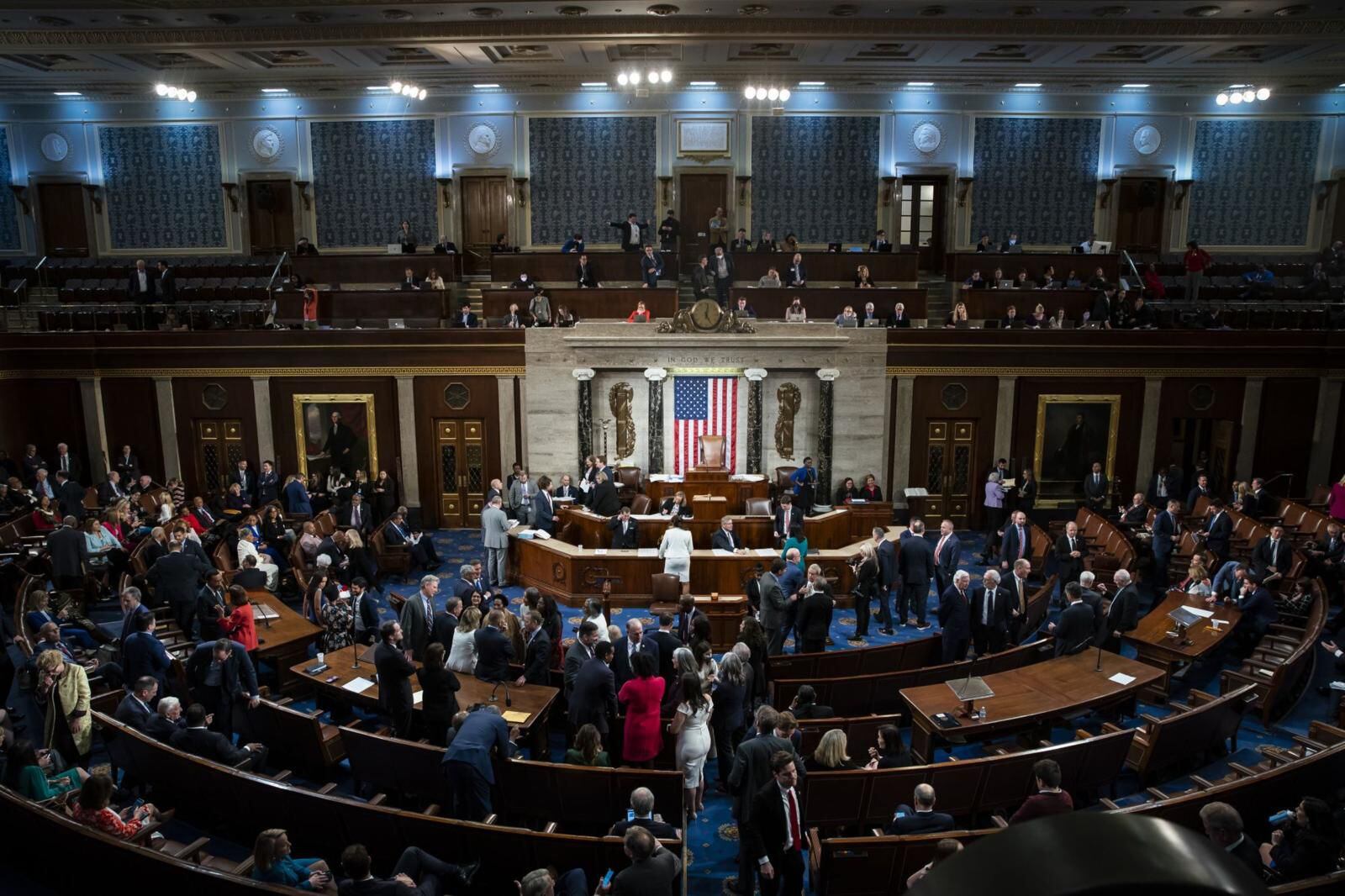
An agreement in principle to avoid a catastrophic default of USA reached after marathon negotiations, has faced the challenge of obtaining congressional approval since Sunday.
Although the tentative deal announced Saturday by President Joe Biden and Republican leader Kevin McCarthy steered the country back from the economic brink, their compromises have not guaranteed the support needed for speedy passage in the (Lower) House of Representatives and the Senate.
And meanwhile, the clock is ticking down to the June 5 deadline, when the Treasury estimates the government will start running out of money to pay its bills and honor its debts.
A default can have catastrophic consequences, including driving the United States into recession and triggering a global economic collapse.
The basic framework of the agreement suspends the federal debt ceiling, which currently stands at $31.4 trillion, for two years, enough to get through the upcoming 2024 presidential election and allow the government to continue to borrow money and remain solvent.
In return, the Republicans secured some limits on federal spending during the same period.
-Leadership test-
Opposition to the bill comes on the one hand from the far right wing of Republicans, who want further cuts in public spending, and on the other, from progressive Democrats who did not want any cuts.
McCarthy has asked for a vote in favor next Wednesday in the House of Representatives, where his party’s slim majority will require significant support from Democrats to offset Republican dissent.
Getting the deal approved will be a major test of Biden’s and McCarthy’s leadership in their respective parties and their powers of persuasion in attracting skeptics.
McCarthy said Sunday on Fox News that the federal spending cuts were a major victory, insisting that 95% of House Republicans were “very excited.”
“It may not satisfy everyone, but it is a step in the right direction that no one expected us to achieve.”, he stressed.
-Opposition in Congress-
The strident note from the Republican opposition was delivered by Rep. Dan Bishop, a member of the ultra-conservative House Freedom Caucus, who tweeted a vomit emoji and criticized McCarthy for achieving “almost zero.”
McCarthy and Biden were scheduled to speak on Sunday to finalize the deal, after which a text of the bill will be released and an intense campaign by the party to secure votes in Congress for passage will begin.
Both parties relented. Biden had initially refused to negotiate on spending issues as a condition of raising the debt ceiling, accusing Republicans of holding the economy hostage.
And the big cuts that the Republicans wanted did not pass, even though non-defense spending will hold steady next year and only increase nominally from 2025.
“The agreement represents a compromise, which means that not everyone gets what they want. That is the responsibility of governing,” Biden said.
The countdown to June 5 means the law will have to be voted on in Congress much faster than usual times to pass even less controversial bills.
McCarthy hopes to win the House’s narrow majority of 222 Republicans, but opposition will come from 35 far-right lawmakers who told him to hold his ground for more radical spending cuts.
That means a large number of Democrats will have to be persuaded to vote with a small number of Republicans, something that rarely happens with big bills.
If it still defaults, the government would not lose loan payments until mid-June, but in the meantime it would likely have to stop issuing $25 billion in federal wage and social security payments.
The battle has been closely watched by major ratings agencies, with Morningstar and Fitch warning that they could opt for a downgrade of the country even if the crisis is averted.
Source: AFP
Source: Gestion
Ricardo is a renowned author and journalist, known for his exceptional writing on top-news stories. He currently works as a writer at the 247 News Agency, where he is known for his ability to deliver breaking news and insightful analysis on the most pressing issues of the day.











